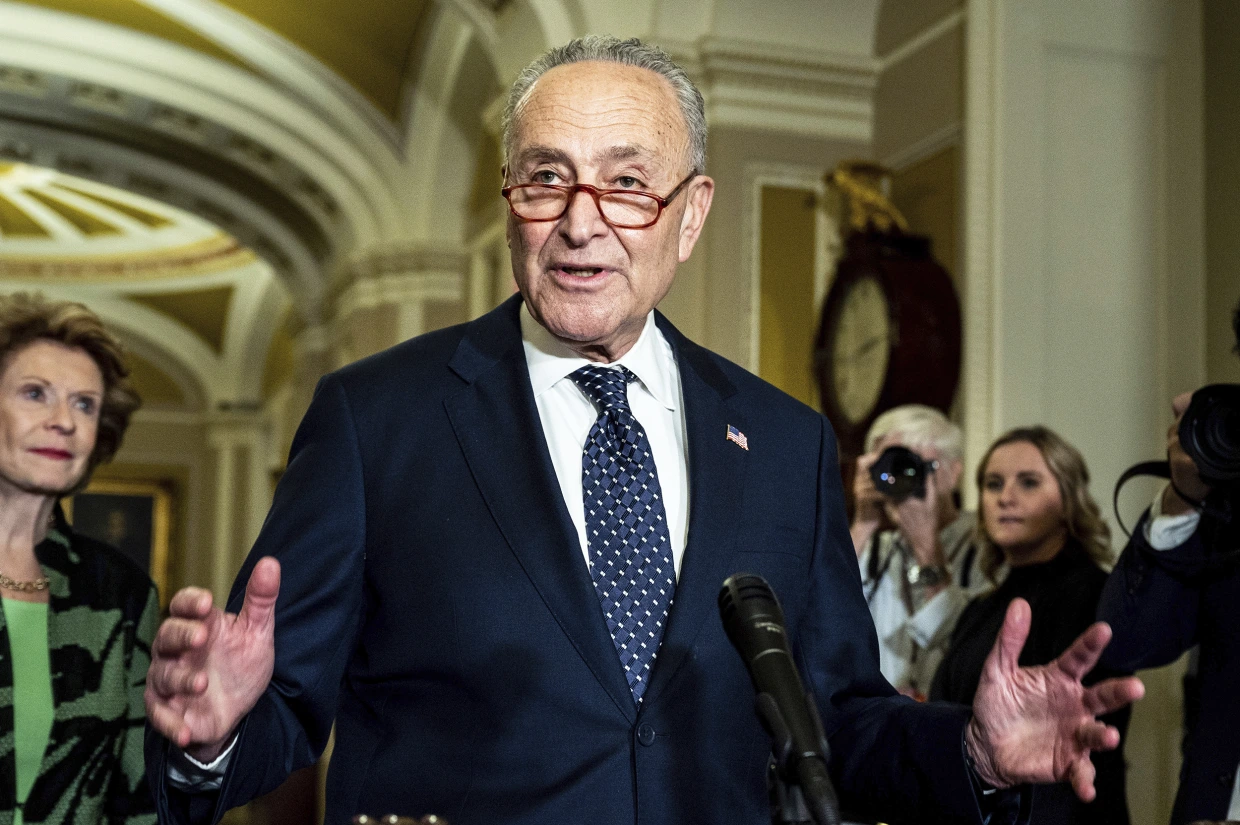The nation’s largest technology leaders tentatively endorsed the concept of government oversight for artificial intelligence during a unique closed-door gathering in the U.S. Senate on Wednesday. However, reaching a consensus on the nature of regulation and the political path to legislation remains a formidable challenge.
Senate Majority Leader Chuck Schumer, who convened this private session on Capitol Hill as part of his initiative to regulate artificial intelligence, disclosed that he posed a fundamental question to the nearly two dozen tech executives, advocates, and skeptics present: Should the government have a role in supervising artificial intelligence? He reported that “every single person raised their hands, even though they had diverse views.”
Among the topics under discussion were the potential establishment of an independent agency to oversee specific aspects of the rapidly advancing technology, methods for enhancing corporate transparency, and strategies for maintaining the United States’ competitive edge over nations like China.

Elon Musk, CEO of Tesla and X, emphasized the importance of having a “referee” in the field of AI, characterizing the discussion as a “very civilized discussion, actually, among some of the smartest people in the world.” While Schumer welcomed the input of these tech executives, he emphasized that he may not necessarily follow their advice as he collaborates with fellow senators on the challenging endeavor of imposing some level of oversight on this burgeoning sector.
Schumer asserted that Congress should maximize the benefits of AI while minimizing its potential drawbacks, including bias, job displacement, and doomsday scenarios. He noted, “Only government can be there to put in guardrails.”
Prominent tech leaders like Mark Zuckerberg of Meta, former Microsoft CEO Bill Gates, and Google CEO Sundar Pichai attended the meeting. Musk believed that this gathering “might go down in history as being very important for the future of civilization.”
However, before any regulatory framework can be established, lawmakers must first reach a consensus on whether to regulate AI and what form that regulation should take.
Historically, Congress has struggled to effectively regulate emerging technologies, and the tech industry has largely operated without significant government oversight for decades. Previous attempts to enact legislation related to social media, particularly in terms of privacy standards, have failed.
Schumer, who has made AI a top priority, acknowledged that regulating artificial intelligence is one of the most complex challenges Congress has faced. He cited its technical complexity, rapid evolution, and far-reaching global impact as reasons for the difficulty.
The release of ChatGPT less than a year ago has spurred businesses to implement new generative AI tools that can create human-like text, program computer code, and generate novel multimedia content. This has heightened concerns about potential societal harms and has led to calls for greater transparency in data collection and usage.
Republican Senator Mike Rounds of South Dakota, who co-led the meeting with Schumer, stressed the need for Congress to proactively address AI’s positive developments while addressing concerns regarding data transparency and privacy.
During the meeting, participants, including Musk and former Google CEO Eric Schmidt, raised existential risks associated with AI. Zuckerberg brought up the issue of closed versus “open source” AI models, while Gates discussed addressing hunger. IBM CEO Arvind Krishna expressed opposition to certain proposals favored by other companies, which would necessitate licenses.
The potential establishment of a regulatory agency was a significant topic of discussion. Schumer acknowledged that this remains one of the most pressing questions to be addressed. Musk, in particular, expressed confidence in the likelihood of creating such an agency.
Outside the meeting, Google CEO Pichai expressed general support for Washington’s involvement in AI regulation, emphasizing the importance of government’s role in innovation and safeguarding the technology.
However, some senators criticized the closed-door nature of the meeting and called for tech executives to testify in a public forum. Senator Josh Hawley of Missouri, for instance, opted not to attend, characterizing it as a “giant cocktail party for big tech.” Hawley has partnered with Senator Richard Blumenthal of Connecticut to introduce legislation requiring tech companies to seek licenses for high-risk AI systems.
Critics also expressed concerns that the event may have disproportionately prioritized the interests of large corporations over the broader public. Sarah Myers West, managing director of the nonprofit AI Now Institute, noted that the combined net worth of the attendees exceeded $550 billion, making it challenging to represent the broader public adequately.
In the United States, major tech companies have expressed support for AI regulations, though consensus on the specifics remains elusive. Similarly, while members of Congress agree on the need for legislation, divergent opinions on the appropriate course of action persist.
Partisan differences have emerged, with some lawmakers focusing on the risk of overregulation while others prioritize addressing potential AI-related risks. These divisions often align with party affiliations.
Some concrete proposals have already been put forth, including Senator Amy Klobuchar’s legislation that would require disclaimers for AI-generated election ads featuring deceptive content. Schumer indicated the need for swift action before the next presidential election.
Senators Hawley and Blumenthal have proposed a broader approach, which would establish a government oversight authority with the power to assess certain AI systems for potential harms prior to granting licenses.
While figures like Elon Musk have raised concerns akin to those seen in science fiction about losing control to advanced AI systems, Deborah Raji, the sole academic participant at the forum, emphasized real-world harms already occurring. She stressed the importance of balancing perspectives and priorities as senators work toward new legislation.
Some Republicans remain cautious about mirroring the European Union’s approach, as the EU recently implemented comprehensive rules for artificial intelligence. These rules classify AI products and services into four risk levels, ranging from minimal to unacceptable. A group of European corporations has urged EU leaders to reconsider these rules, arguing that they could hinder the ability of companies within the 27-nation bloc to compete internationally in generative AI usage.
